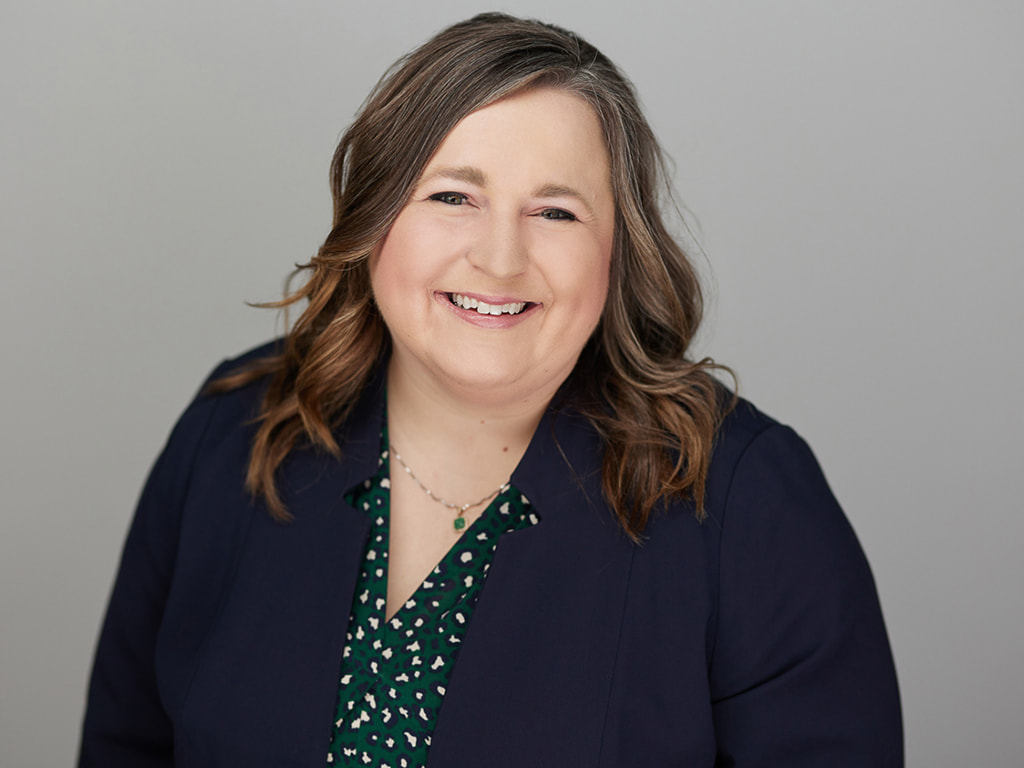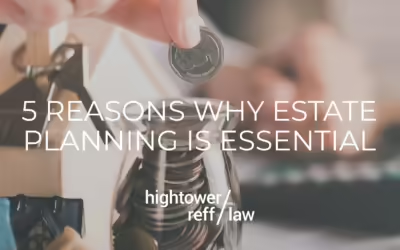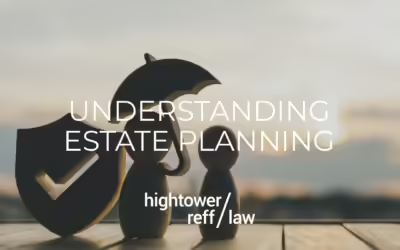Wills & Trusts
Our Omaha attorneys are here to help you accurately document your decisions about who will handle your assets when you’re unable to.

Meet the Team
At Hightower Reff Law, we employ reputable attorneys with unique backgrounds who are dedicated to helping you feel confident in your estate plan.
Our Process For Drafting Wills & Trusts
We want you to know what to expect when drafting your wills and trusts. Our Hightower Reff Law team will walk you through these estate planning steps with compassion and clarity:
- Decide which assets to include in your will or trust.
- Name who will inherit your property.
- Choose an executor or trustee to handle your estate.
- Draft your document with our attorneys.
Will Services & Types of Trusts
Hightower Reff Law drafts and executes comprehensive estate plans that are best for you. When setting up a will, you’ll determine how you want your assets to be handled in accordance with your estate plan.
In contrast, a trust is a legal agreement in which a designated trustee holds and manages assets on behalf of one or more beneficiaries. There are three main types of trusts.
Testimony Trust
A testamentary trust is outlined by your will and only becomes effective after death. A personal representative for your estate (elected by you) will establish the trust based on criteria laid out in your will. We recommend this type of trust for parents who want to set guidelines around their assets.
- Funded with the assets you specify in your estate plan
- Subject to the probate process
Living Trust
A living trust is established while you are alive. It involves transferring ownership of your assets to your trustee.
- Can be used to avoid the probate process
Irrevocable Trust
An irrevocable trust cannot be modified or terminated once it is created. Talk with our legal experts on which type of trust is right for your needs.
other Estate Planning Services
We know you don’t want to think about dying. But when you don’t take estate planning seriously, your loved ones will be faced with tough choices that may not be what you actually want. Not only does a well-established estate plan follow your wishes, but it also helps avoid chaos and extra costs.
Powers of Attorney
If you have a properly executed power of attorney, your family can avoid the difficult process of filing for a guardianship or conservatorship over you. A power of attorney document is less expensive to draft and execute than filing for a guardianship in court. Plus, it’s something that you can put in place before a crisis happens.
Guardian & Conservatorship
Under a will, you can also name guardians and conservators to care for your minor children after your death. We’ll give you peace of mind in knowing you have a solid plan for you and your family to fall back on.
Our Will & Trust Attorneys in Omaha
Get caring, professional advocacy when you work with our team of knowledgeable Omaha will and trust attorneys. We’re here for you every step of the way.

Partner

Senior Associate
Frequently Asked Questions
What happens if you die without a will?
If a person dies without a will, Nebraska’s intestacy laws dictate who receives their assets.
What are the main benefits of a living trust versus a will?
A living trust usually is not required to go through the probate process, which can make the transfer process smoother for beneficiaries.
What do I need in order to set up a trust?
Contact us to set up a consultation. Our attorneys will walk you through how to set up a trust. It helps if you come prepared by determining which assets you will place in your trust.
Contact Our Estate Planning Attorneys
Estate planning is more than just assets. And it is more than just passing wealth. Estate planning is about making sure you and your family are taken care of, no matter your stage in life. Give yourself the time to make a plan for you.
related content
You Can’t Afford NOT to Do an Estate Plan
Are you delaying your estate planning because you worry about costs or believe you don’t have enough “stuff” to warrant it? You’re not alone. Many people think estate planning is unnecessary unless you have significant assets. But the truth is, you can’t afford NOT to...
Understanding Legal Terms in Estate Planning: Your Path to Peace of Mind
When it comes to securing your legacy and ensuring your loved ones are cared for, estate planning is an essential step that can feel overwhelming. You may be wondering where to start, and that’s perfectly normal. Understanding the key terminology of estate planning is...
The Case for Marriage as an Estate Planning Tool
Marriage can offer many benefits for estate planning purposes in Nebraska, largely due to the legal and financial protections and privileges granted to married couples under the law. It may not be the most romantic thing ever, but there are benefits to being legally...



